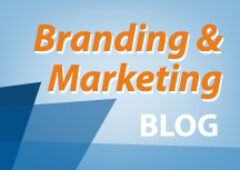In the world of business, marketing yourself is very important. And we all are guilty of judging a book by the cover.
This is especially true in sales, where you are calling on customers and meeting people in networking situations. Doing sales is like going on a job interview every day, and when 55% of what people think of you is the nonverbal stuff, it’s very important to be wearing the right clothing!
This article is focused on professional attire for women. Because there are so many choices in clothing for women, I believe it is often more difficult to know what is appropriate for women.
Here is a list of various articles, links, photos, powerpoints and “how to’s” that are specifically focused on women’s attire. If you know someone who just graduated from college and they are selling themselves at an interview with a potential employer, you may want to forward a link to this article.
I firmly believe that if you are in sales (even more than other professions) you have to know the difference between Business Professional Attire and Business Casual Attire.
Here are some good PPT slides with examples of the difference between business professional, business ready, business casual, and “casual casual” with different sections for men and women. Check out both men and women, so you can see the similarities. With the concept of “business ready”, you can just put on your jacket /blazer (and change shoes if you have open toed sandals) and you’re ready to go in a moment’s notice…without being stuck wearing a suit all day.
The SalesHQ website describes what to wear to match your audience and accessories do’s & don’ts. Here’s a quick overview of what to wear suits, shoes, jewelry, colors etc.
Business casual might be appropriate for what people are wearing in many companies, but on a sales call to a large company you are in much stronger position if you show up wearing business professional vs business casual.
The difference can be confusing sometimes. There are many fashion examples that might show a woman in business casual and call it business professional, but I believe that they made a mistake.…
Like this example when a women is wearing a bulky red top, with no jacket. If it doesn’t have a jacket over it, so to me she looks like an assistant, not the one in charge.
Compare it to the man who is wearing a suit jacket, shirt and tie (3 layers vs one layer for the woman.) If they both showed up for the same job, he would get the job because he is more professional.
Plus I think that blue, grey or black is better. Red is usually too strong unless you’re going for the close or you know that there will be hecklers in the room and you need more power to keep control of the room. Bright red can be intimidating red.
This infograph shows the right blouse with the suit, but then shows the wrong shirt (v neck, short sleeves) in the next frame. Compare it to the guy’s shirt right next to it. And he will have a tie over the buttoned up shirt. So that is 2 ways that top is wrong for the woman. If it doesn’t compare to showing the same amount of skin as the guys, you won’t be treated with the same respect (or have a change at getting the respect). While you probably won’t take your jacket off, you might. And if you have short sleeves, you won’t be “business ready”.
This visual is pretty good, but again I think he would get the job over the woman. See how she is hiding behind her hair… maybe it should be tied back or at least behind the shoulders.
Also notice how their body language is with their hands & toes. Who is more confident? Who could handle the job?
To me, she is hiding behind her hair (bangs) and her arms… and her feet say “I’m nervous.” Compare his posture to hers, where I think his hands and feet are saying, “No problem, I’ve got this.”
Business professional dress is more formal, more neutral.
What do you think? Do you agree with my examples of business professional and business casual? Do you have website links to add. I’d be interested to see what you think! Please leave a comment below.
